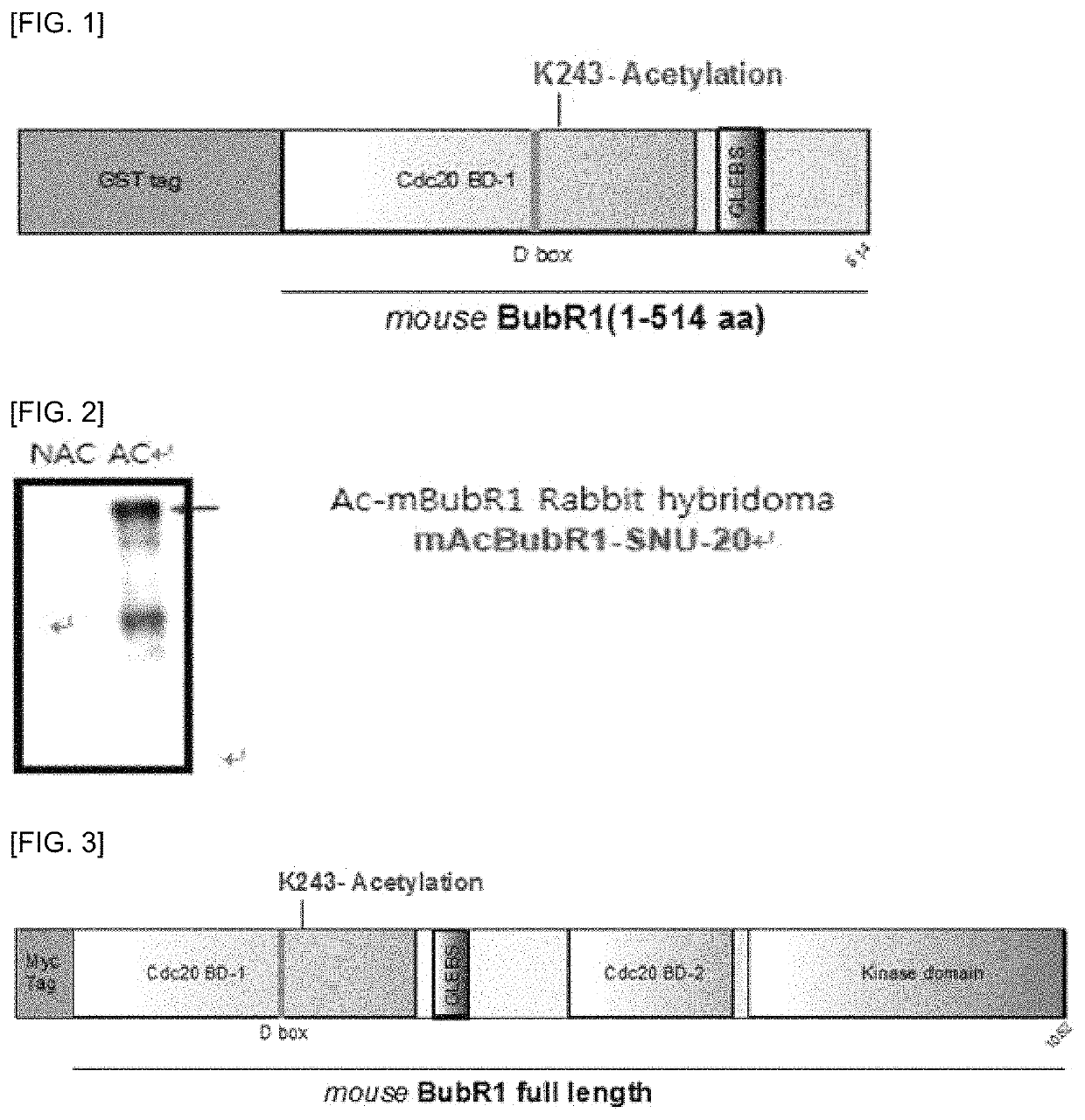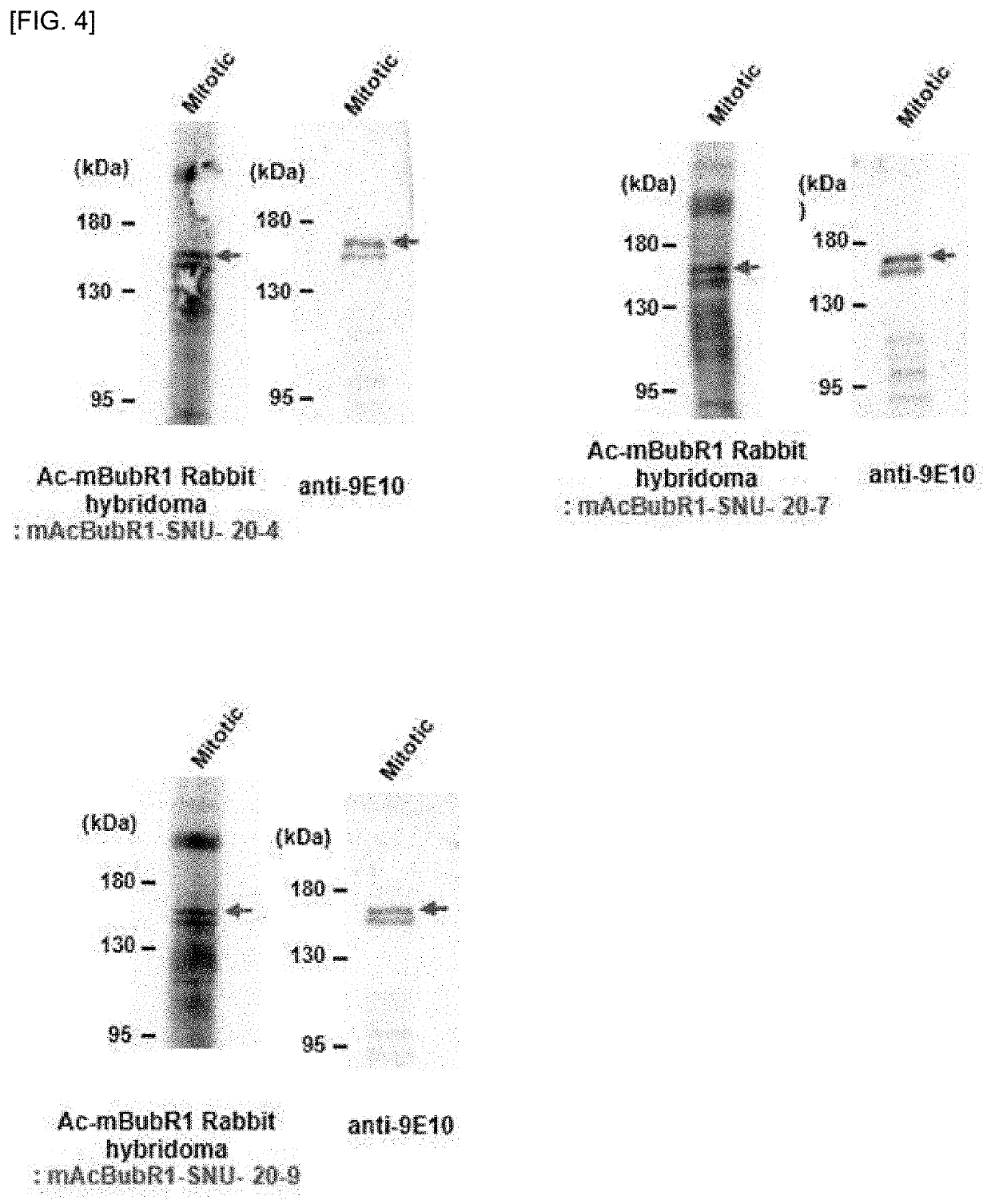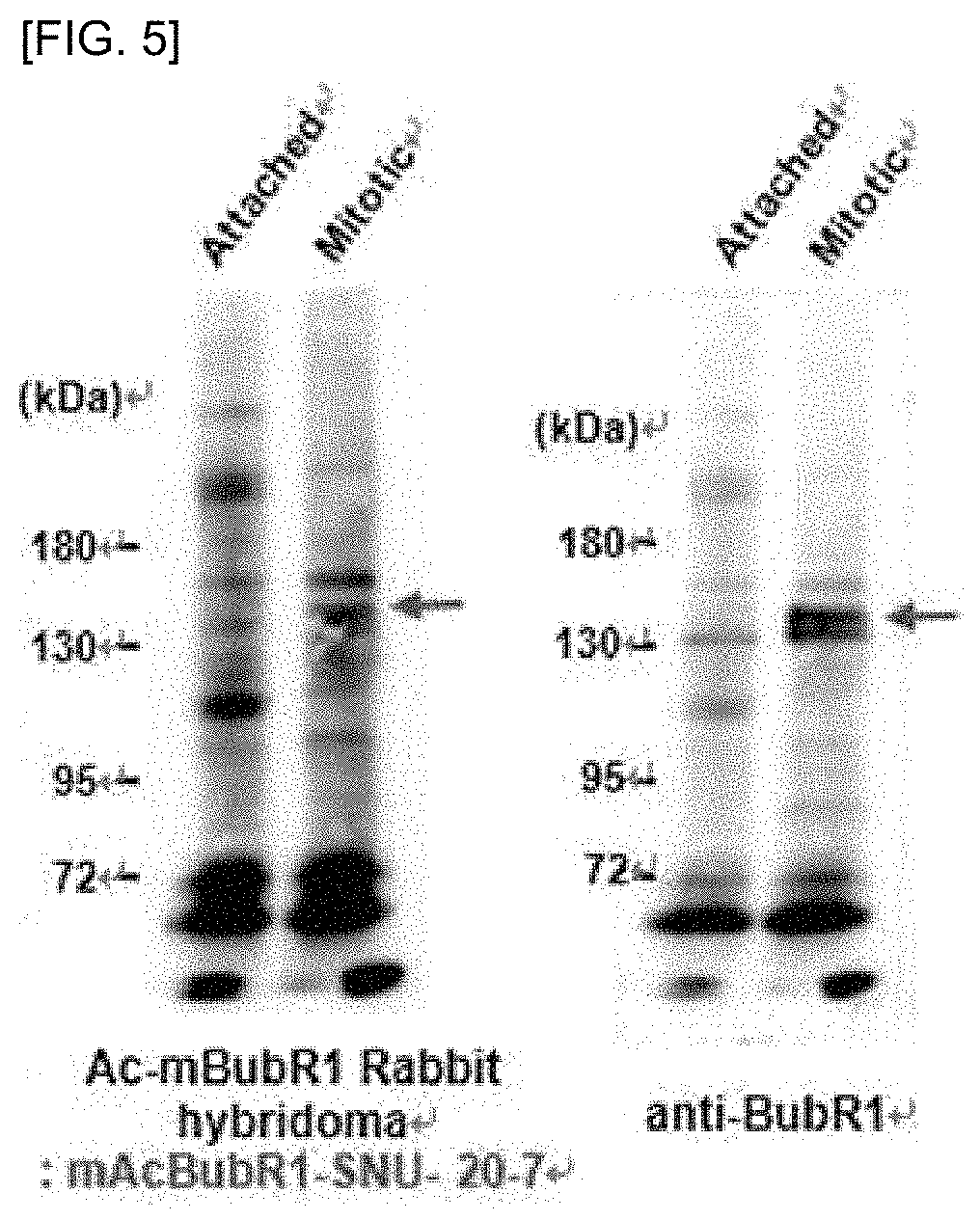Specific monoclonal antibody to acetylated mouse BubR1 and preparation method therefor
a mouse bubr1 and specific monoclonal antibody technology, which is applied in the field of rabbit immune monoclonal antibody against acetylated mouse bubr1, can solve the problems of inability to carry out drug screening to find novel anticancer agents using conventional antibodies in mouse models, and the method of producing rabbit immune monoclonal antibody against acetylated mouse bubr1 has not been disclosed or suggested, and achieves excellent cell division checkpoint activity and superior specificity and reactivity
- Summary
- Abstract
- Description
- Claims
- Application Information
AI Technical Summary
Benefits of technology
Problems solved by technology
Method used
Image
Examples
example 1
Determination of a Target Peptide Antigen of the Present Invention and Production of Polyclonal Hybridoma Cells
[0036]An anti-mouse acetylated BubR1 antibody of the present invention was prepared using the information and sequences in Table 1 below. For efficient production of the antibody, the left and right sequences were selected so that the lysine (K) residue is located at the middle position, to select a target peptide (SEQ ID NO: 1) for production of the antibody (Table 1).
[0037]
TABLE 1mouse BubR1 accession numberQ9Z1S0Amino acid sequence around thePSIRVGGALKAPGQSR243rd residue, Lysine(K), ofmouse BubR1Target peptide (SEQ ID NO: 1)cGGAL(acK)APGQSfor antibody production(C: Cysteine; G: Glycine; A: Alanine; L: Leucine;K: Lysine; A: Alanine; P: Proline; G: Glycine; Q:Glutamine; S: Serine; K: Acetylation site)
[0038]The target peptide (SEQ ID NO: 1) for antibody production was injected into rabbits, to generate cells producing antibodies against the antigen. Antibody-producing cells...
example 2 preparation
of GST-Tagged Mouse BubR1 (Amino Acids 1-514) Recombinant Protein of the Present Invention and Selection of BubR1-Specific Polyclonal Hybridoma mAbBubR1-SNU-20 Cell
[0039]the GST-tagged mouse BubR1 (amino acids 1-514) recombinant protein was prepared for selecting polyclonal hybridoma cells specifically recognizing acetylated mouse BubR1 only, by in vitro acetylation experiments of the polyclonal hybridoma cells obtained in Example 1.
[0040]The GST-tagged mouse BubR1 (amino acids 1-514) recombinant protein was added with Acetyl-CoA and divided into two groups. The two groups were reacted at 30° C. for 1 hour, wherein GST-P / CAF HAT domain was added to one group and excluded from the other group, to prepare one group (AC) wherein the GST-tagged mouse BubR1 (amino acids 1-514) recombinant protein was acetylated, and other group (NAC) wherein he GST-tagged mouse BubR1 (amino acids 1-514) recombinant protein was not acetylated. The polyclonal hybridoma cell culture broth was added to the a...
example 3
Selection of Monoclonal Hybridoma Cells from BubR1-Specific Polyclonal Hybridoma mAb BubR1-SNU-20 Cells and Purification of Culture Medium
[0043]Single-line (ot subclon) hybridoma cells were additionally selected from the polyclonal hybridoma mAb BubR1-SNU-20 cells selected in Example 2. The additionally selected monoclonal hybridoma cells were cultured in RPMI 1640 medium containing 10% FBS (fetal bovine serum), 1% penicillin and streptomycin under the condition of 37° C. and 5% CO2. Each monoclonal antibody contained in the culture medium was further subjected to immunoprecipitation using HeLa cell or mouse embryonic fibroblast and western blotting as in Examples 4 and 5, to select monoclonal antibodies specifically recognizing acetylated mouse BubR1.
PUM
| Property | Measurement | Unit |
|---|---|---|
| cross-reactivity | aaaaa | aaaaa |
| affinity | aaaaa | aaaaa |
| reactivity | aaaaa | aaaaa |
Abstract
Description
Claims
Application Information
 Login to View More
Login to View More - R&D
- Intellectual Property
- Life Sciences
- Materials
- Tech Scout
- Unparalleled Data Quality
- Higher Quality Content
- 60% Fewer Hallucinations
Browse by: Latest US Patents, China's latest patents, Technical Efficacy Thesaurus, Application Domain, Technology Topic, Popular Technical Reports.
© 2025 PatSnap. All rights reserved.Legal|Privacy policy|Modern Slavery Act Transparency Statement|Sitemap|About US| Contact US: help@patsnap.com



